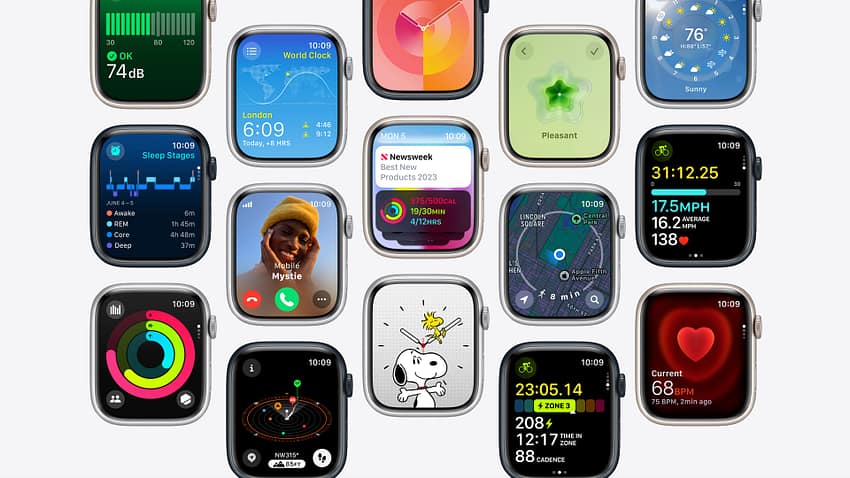Over the last few weeks, the culmination of many years of protracted legal and commercial negotiations have culminated in Apple being sanctioned by the U.S. International Trade Commission. The import ban it imposed, which is currently under review, means Apple is banned from importing the Apple Watch Series 9 and Apple Watch Ultra 2 from Vietnam, where they are made, into the United States.
Much of the coverage has focused on the impact this would have to Apple’s sales. We’ll know more in early February 2024 when Apple announces its next round of quarterly financial information. But the real issue here is one of far greater importance. If Apple is found to have breached Masimo’s patents for its blood oximeter technology, it says a lot about Apple’s product development processes. But, more importantly, it points to a failure of integrity at the world’s most valuable company (by market capitalisation).
A quick summary
Back in 2013, Apple entered negotiations to use Masimo’s blood oxygen sensor technology in a future iteration of the Apple Watch. Masimo’s focus is on technology used by healthcare providers – it does not make consumer products. Apple’s focus is very much on consumer technologies. So, on paper, this looks like a good deal for both companies.
Masimo can potentially profit from its patents through licensing and Apple gets to make a better Apple Watch.
But talks broke down and the deal never happened. Apple then hired some people from Masimo, developed, and patented its own blood oxygen sensor. Those Apple patents were signed by an engineer that joined Apple from Masimo.
That engineer solicited Apple with the promise of helping it develop health-related technology. After leaving Apple he formed another company called True Wearables. It’s worth noting that Masimo sued True Wearables over a similar complaint and won.
Apple is suing Masimo saying it has breached Apple’s payments with the intent of bringing its own consumer device to the market. That’s interesting given Maximo’s business has always been B2B and not B2C.
What’s on the line?
At first blush, Apple’s sales of the Apple Watch seem to be in the firing line. But there are two other issues at stake.
- The inclusion of a blood oxygen sensor in future versions of the Apple Watch
- The question of whether Apple ’stole’ Masimo’s technology
It’s possible Apple developed its own sensor without breaching Masimo’s patents. This is likely to be a heavily technical decision. Both Apple and Masimo measure blood-oxygen levels by using lights. On the face of it, one could easily come to a quick conclusion that Masimo, which was in the market before Apple, was copied by Apple.
One only needs to look back at Apple’s history (and Microsoft and any number of other operating system and software makers) to to see that many of the technologies we use to today were wither copied of strongly influenced by those that came before. 21st century computing still owes an enormous debt to the engineers at Xerox PARC.
Apple’s integrity is being questioned, perhaps in the mist probing way in its history. While the company has faced other challenges (Bendgate and Antennagate spring immediately to mind) this issue is not one about product quality. It strikes to heart of Apple’s reputation for innovation and product development.
What can we expect to happen?
While some are questioning Masimo’s sanity in going up against Apple, it’s not a small company. It has a market capitalisation of about USD$6B. While that’s dwarfed by Apple’s $2.9T value, it does mean it has the resources to take Apple on in a legal battle. And it will be buoyed by its previous win over True Wearables.
Apple seems to be prepared to fight this one out so we can expect the legal shenanigans to continue for some time. At some point one of three things will happen.
- Masimo and Apple will come to an agreement, stop all legal proceedings and reach some form of settlement.
- Masimo will win and receive a handsome licensing payment and ongoing royalties until Apple reengineers its blood oxygen sensor to not breach Masimo’s patents.
- Apple will win and Masimo will have spent hundreds of millions dollars.
In the mean time, the ITC import ban haas been temporarily paused following an appeal by Apple. Apple can resume selling the Apple Watch Series 9 and Apple Watch Ultra 2 but imports won’\t resume until US Customs and Border Protection determines whether changes Apple made to the watches are significant enough to avoid a patent dispute. We can expect that ruling on January 12th.
Until then, the Apple Watch Series 9 and Apple Watch Ultra 2 remain on sale via Apple’s online store for US customers. If you’re anywhere else in the world, it’s time to grab some popcorn and watch the show as this dispute does not (yet) make any difference to Apple Watch sales outside the USA.

Anthony is the founder of Australian Apple News. He is a long-time Apple user and former editor of Australian Macworld. He has contributed to many technology magazines and newspapers as well as appearing regularly on radio and occasionally on TV.

